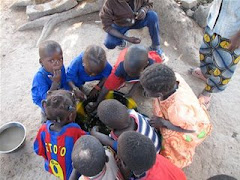Moods are strange things. Driven as much by thought as emotion, and by biology as well as psychology, they can easily feel bigger than we are. They come. They seem to lift our spirits or lower them. And usually they go again as a different mood takes their place.
Some lucky people are genuinely stable in their moods. If pushed too far, they may be ratty, sharp or anxious, but generally speaking they can rely on feeling pretty positive about life, and - as significantly - the people around them can also rely on them being pleasant and easy to be around.
That kind of optimistic stability is a gift to be treasured because there are also many people whose default moods are considerably less sunny. They are not people who are clinically depressed, necessarily, but they live with an inner flatness and absence of pleasure, or a low-grade constant irritability, that significantly colours how they see the world and everyone around them.
Many people come to view this kind of existence as normal and, in a way, they are right. It is normal for them, and the energy it takes to think about change can feel far out of reach. Yet change is needed, in part because a low mood can slip lower, but also because the person living this bleak existence is never doing so alone.
Moods are highly contagious. We step into a room and pick up at once if someone is feeling down. They don't need to talk. Moods "leak" into the atmosphere and, for better or worse, affect everyone around.
Over the past few weeks, several of my friends have spoken to me about the helplessness they feel living or working with someone who is chronically low. One woman described her colleague as "low-grade depressed, like a battery that is not quite flat but not really turning over either". What make the situation worse, in her view, is that he seems incapable of taking action, either because he has become so used to how he is or because whatever he's tried in the past has had little effect.
When it is a beloved partner, parent or child who is struck in the world of grey, those feelings of helplessness can be harder to bear - and more contagious still. Yet people in this situation often find themselves facing some kind of taboo on tough and truthful talking.
We don't want to add to the sufferer's pain, so we bury our own. It becomes easy to lose touch with our own reality and needs, even when that adds to the sum of suffering and doesn't reduce it.
In his book
Listening to Prozac, Peter Kramer comments on how some people with chronic low or flat mood came to feel their most fundamental sense of "self" had been restored when medication and therapy worked effectively. What struck Kramer was that while his patients had in most cases not previously known a lively and optimistic adult self, something within them eagerly claimed it.
Medication and therapy are not for everyone but, intelligently used, they can make a powerful difference; I know they did for me, after the break up of my marriage.
What can also make a difference is to choose to engage far more intensely and energetically than usual with other people, ideas, events, nature and the myriad physical aspects of life that can both stimulate and heal us - even and especially when it's not instantly rewarding or is the last thing you feel like doing.
Putting choice and action ahead of feelings is critical here. It may be true that we can't choose our moods, but we can certainly choose how we will live them out and how we will respond to other people's.
Life is tough at times but it is also precious, every minute of it! Losing sight of that is tragic. It is precisely when throwing ourselves more completely into life seems counter-intuitive or plain impossible that it is most urgently needed - restoring and renewing sufferers and supporter alike.
Joseph - September 2008 - In a pensive mood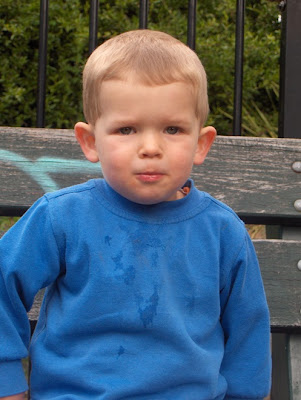 Joseph - September 2008 - Happy Mood
Joseph - September 2008 - Happy Mood
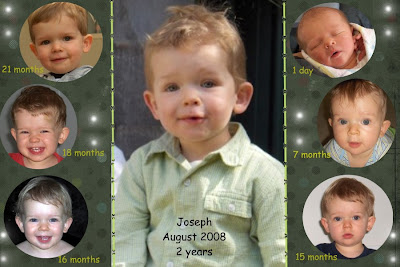
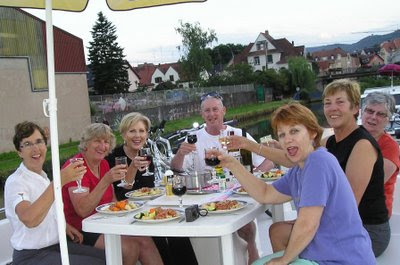

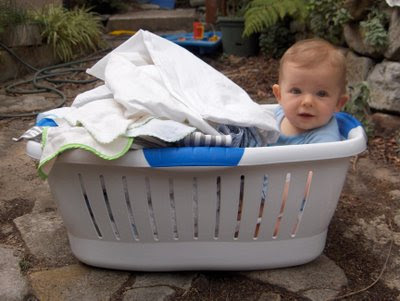.jpg)














